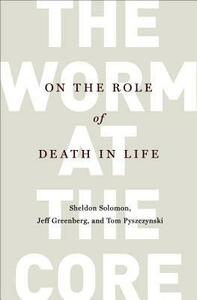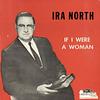Take a photo of a barcode or cover
54 reviews for:
The Worm at the Core: On the Role of Death in Life
Jeff Greenberg, Tom Pyszczynski, Sheldon Solomon
54 reviews for:
The Worm at the Core: On the Role of Death in Life
Jeff Greenberg, Tom Pyszczynski, Sheldon Solomon
5/5 stars? More like “one of the most impactful books I’ve read that has altered how I will view myself and others going forward”/5 stars.
challenging
hopeful
informative
inspiring
reflective
medium-paced
I don't disagree with the fundamental theses of this book on terror management theory: that death fears drive huge swaths of human behavior, and that we are insulated from those fears by investing in our self-esteem and adherence to cultural institutions. Stated broadly, we flee from the fear of death by seeking meaning in personal and trans-personal endeavors, achievements, and worldviews. But the (sorry) worm at the core of the account laid out here is that I just didn't find their account to have much explanatory power beyond the generalizations of dorm-room philosophizing. Sure, fear of death drives people: but how? Specifically, why channel that fear into certain paths and not others? To say, "it's all thanatos, even eros is just thanatos" is simply too broad to really tell me anything about the human condition.
This book is really a restatement of Ernest Becker's ideas, and the value-added, if you will, is that the team of authors have supposedly provided empirical support for his theories. Several of their experiments are described throughout the text. While several were interesting, there were many where I was highly dubious that the lines of causation were as clear as the authors proposed. They just didn't seem very rigorously designed to eliminate other variables or preclude other interpretations.
This isn't really intended to be an academic book, though. I enjoyed the fact that the authors ranged widely in their quotes and in making connections to philosophical or religious traditions. Montaigne, Kierkegaard, Tolstoy, Nabokov, Epicurus and others all make appearances in the text. That said, it's obvious that these authors do not come from a humanities background. The readings of those authors are at about an undergraduate level (at best). Still, nice to see scientists trying to incorporate a more humanistic approach!
Overall, this book contains an interesting if broad hypothesis, but it's padded out and overstretched from what it likely needed to be. Not bad but don't expect to be wowed. And I guess it might be uncomfortable reading if you lack a morbid streak, but I wouldn't know anything about that!
This book is really a restatement of Ernest Becker's ideas, and the value-added, if you will, is that the team of authors have supposedly provided empirical support for his theories. Several of their experiments are described throughout the text. While several were interesting, there were many where I was highly dubious that the lines of causation were as clear as the authors proposed. They just didn't seem very rigorously designed to eliminate other variables or preclude other interpretations.
This isn't really intended to be an academic book, though. I enjoyed the fact that the authors ranged widely in their quotes and in making connections to philosophical or religious traditions. Montaigne, Kierkegaard, Tolstoy, Nabokov, Epicurus and others all make appearances in the text. That said, it's obvious that these authors do not come from a humanities background. The readings of those authors are at about an undergraduate level (at best). Still, nice to see scientists trying to incorporate a more humanistic approach!
Overall, this book contains an interesting if broad hypothesis, but it's padded out and overstretched from what it likely needed to be. Not bad but don't expect to be wowed. And I guess it might be uncomfortable reading if you lack a morbid streak, but I wouldn't know anything about that!


